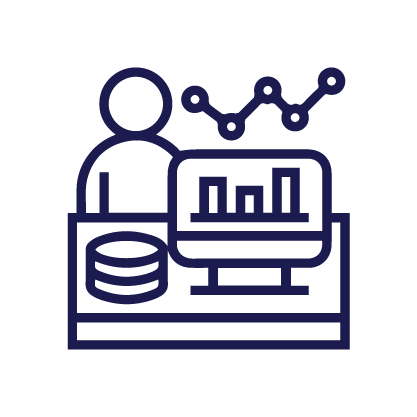IntelliRMA – Multi Channel Response Automation

Customer preference for digital channels has increased usage of mobile, website and email for customer service requests and complaints. Typically 60-70% requests are covered by the top 5 request categories. However expensive and scarce service agent bandwidth is wasted in reviewing and responding to each individual email manually.
Multi-channel Response Automation (mRA) uses cognitive capabilities of Natural Language Processing to identify the customer service intent, extract key elements (like Account #, Name, Email Address, Phone Number) as well as understand customer sentiment.
The extracted information is then utilized to prioritize requests based on category and sentiment. The solution also integrates directly with customer relation management (CRM) system to ensure that all requests are tagged in CRM and tracked to closure.
Additionally, rules can be configured for automated response to frequent service categories with instructions to resolve the problem with self-help tools with a specific context of the service request type.
By close looping the entire process based on Cognitive insights from unstructured data, your business can achieve complete Cognitive Process Automation
Key Features
- Integration with email data and data from other digital channels like Twitter, Website as well text notes in CRM system
- Custom Model to extract business specific entities (e.g. Account Number, Make/Model, Claim Number)
- Ability to extract intent of communication (e.g. Request for a document copy, Changes in Account, Complaint, Escalation etc.)
- Ability to extract key elements like Name, Email, Phone Number
- Extract customer sentiment, emotions from
- Perform analysis of service categories for root cause analysis, identify peak requests and capacity planning
- Analyse product / service with maximum requests and / or complaints and optimize for better customer experience
- Integration with customer facing as well as downstream systems for end-to-end automation
- Ability to train the machine learning model to understand business context and terms
- Real-time integration to close loop the entire process flow
Why Datalogy?

Digital Transformation

Expert Skillsets

Industry Domain Expertise

Timely & Quality Delivery

Solution Accelerators
Blogs

Data-Driven Superlative Customer Experience
Consumers are increasingly seeking seamless digital experiences, particularly given that many of our daily needs can be addressed with a single click. As a result, many individuals have become accustomed to using digital, from purchasing goods online to making payments using banking apps. However, when it comes to buying insurance,

Top 9 Ways AI Is Transforming the Retail Industry
With large-scale digitalisation, it’s safe to say that AI is becoming an indispensable part of our everyday life. A prominent example of the same could be, recommendations. If you are into buying e-books on Amazon, you’ll notice you get suggestions based on your recent purchases or you might’ve noticed how

6 Steps that are Key to Data Preparation in Machine Learning
Typically, raw data cannot be used directly in predictive modelling projects like classification or regression. For algorithms to function, data must be in numbers, and statistical noise and errors must be corrected, while some algorithms impose requirements on data. Raw data, clearly, is prohibited by all means. As a result,
